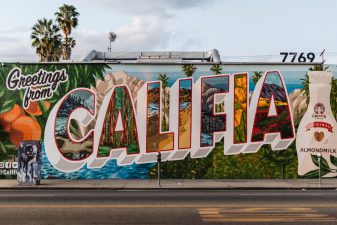 Caspian Day in 5 countries draws attention to the sea’s environmental woes, including a plunging sturgeon population
Caspian Day in 5 countries draws attention to the sea’s environmental woes, including a plunging sturgeon population
What better way to start the weekend than with a delicious new recipe and a slice of geological perspective? The Tethys ocean, that ancient hydrological bridge that connected the Pacific and Atlantic oceans 50 million years ago, receded. When it did, it left behind whale fossils in what is now Egypt’s desert, as well as the 1000km long Caspian Sea – the world’s largest enclosed body of water. Yesterday was Caspian Day, a day for 5 nations, including Iran, whose polluted capital city Tehran kills 27 people a day, to reflect on their compromised lifeline.
A familiar tail
It’s a familiar tale: 400 endemic species that rely on the Caspian Sea are threatened by man’s activities: agriculture, oil and gas exploration, and industrial waste.
What is perhaps less familiar is the willingness of Azerbaijan, the Islamic Republic of Iran, Kazakhstan, the Russian Federation and Turkmenistan to work together to protect their combined interest. This will was made concrete yesterday with “beach-cleaning activities, conferences, thematic workshops, and concerts held throughout the day,” according to a United Nations Environmental Program (UNEP) press release.
Dare to be aware
These activities were designed to raise awareness and engagement among the public, to draw attention to the importance of conserving biodiversity, and to encourage pollution reduction. Though this was a community endeavor, the hard, legal work goes on behind the scenes.
Established in November 2003, the Tehran Convention is the only legally binding agreement between the five states. Its aim is “to introduce cooperation on preparation and response measures for oil spills, as well as common rules for dealing with the environmental impact of activities with potential trans-boundary effects,” writes UNEP.
The stuff of sturgeon
UNEP also reports that “cooperation between the environment community and the fisheries sector will address declining fish stocks and promote ecosystem resilience as a way to sustain the 140 species of fish living in the sea, sturgeon being one of the most important.”
Caviar is an illustrious ingredient for the wealthy person’s dinner table even though the process used to obtain the eggs from sturgeon, some of which can grow to 18 feet, is fairly unpleasant.
Meredith Gordon from the University of Harvard explains:
The sturgeon are caught in large nets, and guided to shore by boats and winches. Mature, female sturgeon are stunned by a blow to the head with a wooden club, taken on shore, and stunned again. An incision is made in the belly of the sturgeon, and the whole egg sack is removed. In Russia, the sack is removed before the fish dies; in Iran, the fish is killed before the sack is removed.
Pesky poachers
Sturgeon populations are threatened not only by the factors described above, but the World Wildlife Fund (WWF) claims that “poaching activity in the Volga-Caspian basin alone is estimated to be 10-12 times over the legal limits,” and that some populations have declined by roughly 70%.
In 2002, Iran’s caviar trade amounted to 39.6% of the legal level of 193.6 tonnes, which was established by the Convention on International Trade in Endangered Species of Flora and Fauna (CITES). However, WWF suggests that illegal trade still continues.
Hopefully, as more Caspian Days take place, awareness of the importance of protecting both the sea and the fish that ply them will mature.
:: image via calacademy.org and story via UNEP
More News From Iran:



